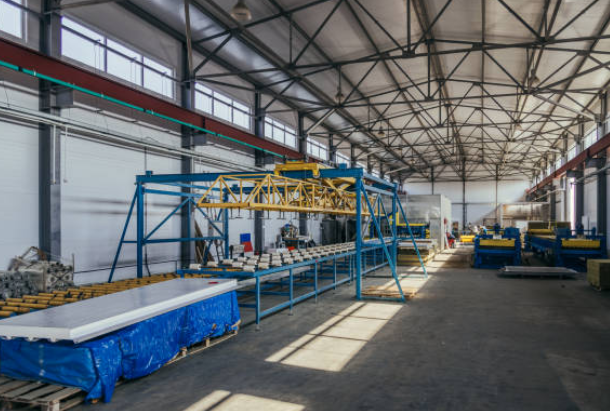
Posted on Wednesday, October 16, 2024
The manufacturing industry in Ghana is experiencing significant growth, fueled by the increasing demand for quality construction materials and metal products. For businesses looking to invest in roll forming machines, selecting the right equipment is crucial to ensuring productivity, efficiency, and profitability. This comprehensive guide outlines key factors to consider when choosing a roll forming machine tailored to your production needs, material types, and budget considerations.
Before selecting a roll forming machine, it’s essential to determine the specific types of products you intend to manufacture. Common products include:
Understanding your production volume requirements helps in selecting a machine that can handle your workload. If you anticipate high demand, opt for a machine with higher production speeds to meet customer expectations while minimizing lead times.
Consider the complexity of the designs you wish to produce. Some roll forming machines are better suited for intricate shapes and customized profiles. If your business requires advanced design capabilities, ensure the machine you choose can accommodate those needs.
The types of materials you plan to use in your roll forming process are a crucial factor. Common materials include:
Ensure that the machine you select can handle the specific material thickness and width you require. Different materials may necessitate varying levels of power and capabilities in the machine.
Efficient feeding mechanisms are essential for smooth operation and minimizing waste during production. Evaluate machines that offer reliable material handling systems to streamline your production process.
Cost is often a significant deciding factor. When evaluating roll forming machines, consider both new and used options. While a higher initial investment may seem daunting, remember that a more robust machine may offer enhanced durability and efficiency, resulting in long-term savings.
Conduct a thorough ROI analysis to determine how the investment in a specific roll forming machine will impact your profitability. Consider production speed, quality, and how well the machine meets customer demand. A well-chosen machine can significantly enhance your business's bottom line.
Evaluate the technical specifications of potential machines:
Assess the available space in your facility to ensure the machine dimensions fit your production area. A well-placed machine can improve workflow and efficiency.
Safety should always be a top priority. Ensure the machine meets safety standards and is equipped with features like emergency stop buttons, safety guards, and proper ventilation to protect your operators.
Research potential suppliers to evaluate their reputation and experience in the industry. A reliable supplier can offer valuable insights and support throughout the purchasing process and beyond.
Consider the level of customer service provided by the supplier, including installation, training, and ongoing maintenance support. Strong after-sales support can minimize downtime and enhance operational efficiency.
Select machines that come with comprehensive warranties covering parts and labor. A solid warranty is a sign of the manufacturer's confidence in their product and can provide peace of mind.
Whenever possible, request a demonstration of the machine you are considering. This hands-on experience can offer valuable insight into its performance and ease of use.
Seek feedback from other businesses in Ghana that have used similar machines. Their experiences can provide helpful insights into performance, reliability, and customer service.
Choosing the right roll forming machine for your business in Ghana requires careful consideration of your production needs, material types, and budget constraints. By evaluating these factors and conducting thorough research, you can make an informed decision that aligns with your operational goals.
Investing in the right equipment will not only enhance your manufacturing capabilities but also allow you to meet customer demands effectively, ultimately leading to business growth and success in Ghana's competitive market. By following this guide, you can navigate the complexities of selecting a roll forming machine and position your business for a prosperous future.

Used Purlin Roll Forming Machines for Sale Worldwide
Posted on Sunday, January 25, 2026
Pre-Owned Roll Forming Machines for Purlin & Structural Steel Profiles

Used Roof Panel Roll Forming Machines for Sale Worldwide
Posted on Sunday, January 25, 2026
Pre-Owned Roll Forming Machines for Roofing Panel Production

Used Roll Forming Machines for Sale Worldwide
Posted on Tuesday, January 20, 2026
Pre-Owned Roll Forming Machines with Inspection, Verification & Global Support

Steel Coil Supply for Roll Forming Machines Worldwide
Posted on Tuesday, January 20, 2026
Reliable Steel Coil Supply for Roll Forming, Fabrication & Manufacturing Applications
Copyright 2026 © Machine Matcher.